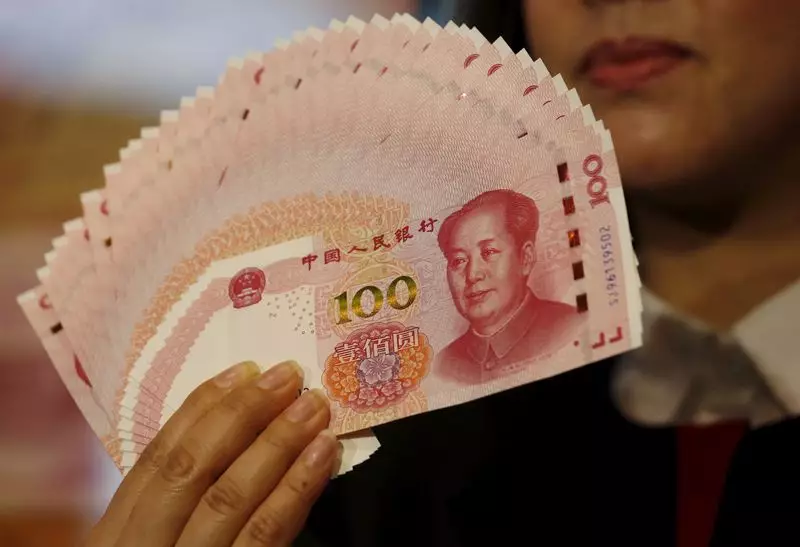As China’s economy grapples with one of its slowest growth rates in recent years, a growing number of individuals are facing financial hardships like never before. The diminishing economic landscape has given way to a troubling trend: con artists are increasingly targeting financially distressed citizens with fraudulent schemes, masquerading as salvation. This modern-day exploitation bears a curious resemblance to the world depicted in the hit South Korean series, “Squid Game,” albeit without the life-threatening stakes involved. Instead of risking their lives, players are lured into supposed “self-discipline” challenges and dubious debt relief schemes that often lead to further financial ruin.
A particular scheme that has gained traction is the “isolation challenge,” where participants pay hefty fees for the chance to win substantial cash prizes by adhering to stringent rules over an extended duration, sometimes up to a month. Promises touted reach as high as 1 million yuan, offering a glimmer of hope for financial relief. However, the reality is starkly different, as many participants report being deceived and defrauded. In one notable case from Shandong province, a court found in favor of a contestant after he was unjustly disqualified under dubious pretenses, awarding him a refund and recognizing the unfair nature of the contract he entered.
The mechanics of these isolation challenges are alarming. Participants are subjected to extensive rules that govern their behavior and daily activities, including constraining their toilet breaks to a mere 15 minutes and limiting contact with technology. Surveillance footage becomes a tool for unjust disqualifications, with players often disputing perceived violations of the rules. Such arbitrary enforcement has led to mounting frustration and legal disputes, pushing some individuals to seek recourse through the judicial system. Courts are beginning to take note of these distressing ethical breaches, yet the frequency of such scams raises questions about larger systemic failures in regulatory oversight.
Beyond the isolation challenges, the search for financial reprieve has also opened doors to predatory intermediaries who promise debt restructuring solutions. The National Financial Regulatory Administration (NFRA) has sounded alarms regarding these agencies, which advertise their services through a variety of channels, including social media. As they lure desperate borrowers with the promise of relief, they often impose exorbitant fees that can reach up to 12% of the loan amount. This practice takes advantage of vulnerable individuals, exacerbating their financial predicaments rather than alleviating them.
Engagement with these so-called debt intermediaries not only carries the risk of financial exploitation but also poses significant privacy concerns. The NFRA warns that individuals who engage these services may inadvertently expose their personal information to potential misuse or sale. With household debt already soaring to staggering levels—82.47 trillion yuan in November—such exploitative practices can have far-reaching implications for the financial health of the consumer base and the broader economy.
As these concerning patterns develop, it becomes essential for citizens to cultivate a critical awareness of the risks associated with quick-fix financial solutions. Increased vigilance and education on recognizing deceitful practices are imperative in today’s climate. Without proactive measures and an aggregated effort from regulators, consumer advocates, and the public, the cycle of exploitation may only deepen as individuals, pushed to desperation, continue to fall prey to unscrupulous actors in an already fragile economic landscape.
As the global narrative echoes the consequences of financial downturns and the lengths to which people will go for relief, it is evident the battle against fraud in China is far from over. The intersection of economic distress and dishonesty creates a fertile ground for exploitation, demanding immediate attention, accountability, and reform in financial practices.

